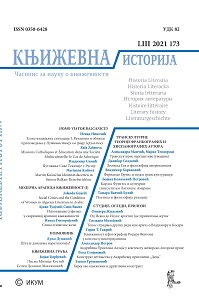Савремене студије кубанске културе: Фернандо Ортис и појам транскултурације
The Contemporary Cuban Cultural Studies: Fernando Ortiz and the Concept of Transculturation
Author(s): Vladimir J. KaranovićSubject(s): Other Language Literature
Published by: Институт за књижевност и уметност
Keywords: Fernando Ortiz;transculturation;Cuban culture;Ethnographic Studies;Latin American Cultural Studies;
Summary/Abstract: At the very basis of the Western European cultures, and as of recently of Eastern cultures too, lies the process of meeting, communication, mixing, permeation and mutual change. Apart from the European continent, this phenomenon is especially present in the cultures that stood, in the political and social sense, as constituent parts of the colonial system, in the relation of domination and submission. In the process of contact with different cultures, some elements are often assimilated selectively, which lends them new forms, new meanings, or different symbolic functions.The Cuban anthropologist, historian, ethnologist, criminologist, lawyer, linguist, politician and diplomat Fernando Ortiz Fernández (1881–1969), being among the first theorists of Latin American culture, in his book Cuban Counterpoint – Tobacco and Sugar (1940) highlighted the importance of the concept of “transculturation”. This concept was at the center of his research of the so-called capacity of “peripheral” cultures to create an intercultural fusion through encounters and take in certain elements, as opposed to the free or passive assimilation of entire cultures and/or only some cultural elements. Transculturation is the basic element of Cuban history, since it has accompanied the cultural and social development from the first settlement to the present day. Although it is being carried out in phases, this type of fusion implies the mixture and permanent racial, social, cultural etc. dialogue.This extensive, systematic and unique essay partially examines the limits of the concepts of contemporary postcolonial criticism. The basic idea of the book was, obviously, to show, using a dynamic form of the so-called “transculturation”, that there must be stability in the modern world, but also a dose of reduced violence, a constant game of power and its social consequences. This paper also allows us to observe the complexity of deception and the game of power in the process of creating or degrading cultural formations.
Journal: Књижевна историја
- Issue Year: 53/2021
- Issue No: 173
- Page Range: 165-177
- Page Count: 13
- Language: Serbian

